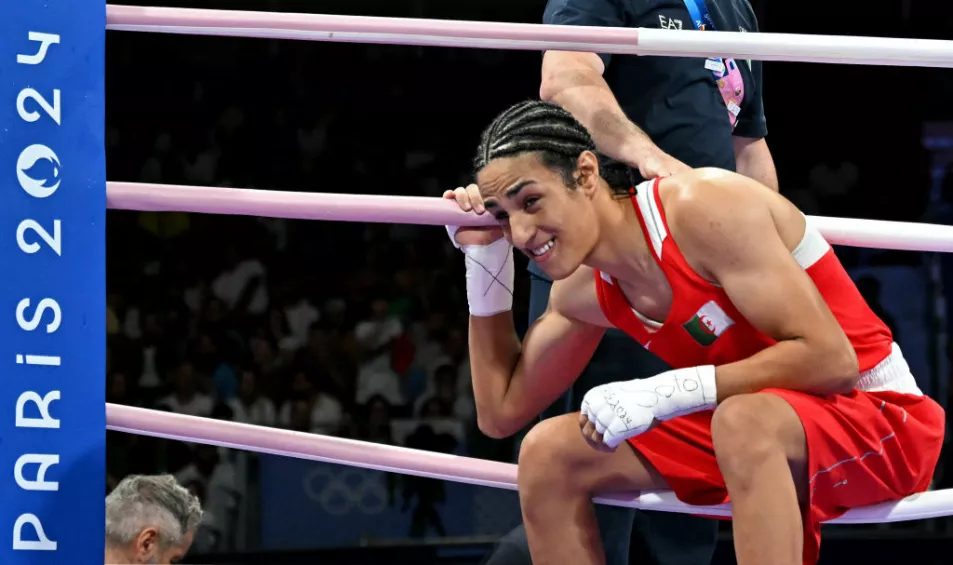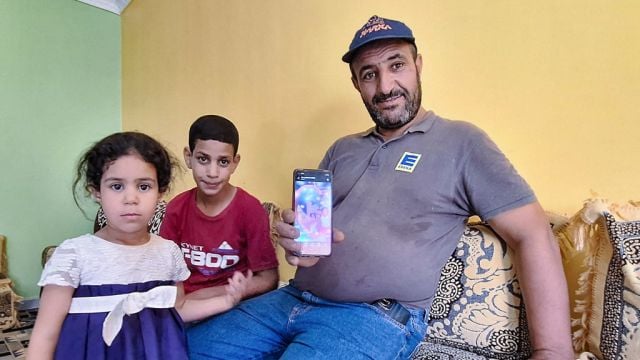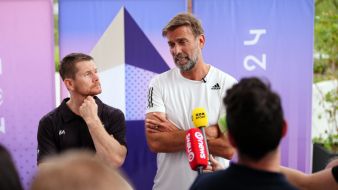The father of Imane Khelif, the Algerian boxer at the centre of an Olympic row over gender, said she had honoured his family, calling attacks against her immoral.
Khelif failed a gender eligibility test at the International Boxing Association (IBA) World Championships last year but was allowed to participate at the Paris Games by the International Olympic Committee.
Her quick-fire Olympic victory over Italian boxer Angela Carini, who pulled out of their duel after suffering a series of painful blows, re-ignited a broader debate about gender differences in sport.
Khelif will face Hungary's Anna Luca Hamori later on Saturday in the women's welterweight quarter-finals.
In an interview at his simple, cinderblock home on the outskirts of the northern Algerian city of Tiaret, Amar Khelif said he was proud of his daughter, and backed her to win a medal for all of Algeria.
"Having such a daughter is an honour because she is a champion, she honoured me and I encourage her and I hope she will get the medal in Paris," he said. "Imane is a little girl that has loved sport since she was six years old."
He shared with Reuters an official-looking document, which showed her birthday.
"This is our family official document, May 2, 1999, Imane Khelif, female. It is written here you can read it, this document doesn't lie," he said.

Khelif fell foul of IBA eligibility rules that prevent athletes with XY chromosomes from competing in women's events, when she was disqualified hours before her gold-medal bout in New Delhi last year.
However, the IBA was stripped of its status as the global governing body for boxing by the IOC last year, leaving the IOC in charge of running the boxing competition at the Paris Games.
The IOC, which states that inclusion should be the default and athletes should only be excluded from women's competition if there are clear fairness or safety issues, has defended its decision to allow Khelif to compete.
IOC president Thomas Bach said there was "never any doubt" about Khelif being a woman.
"We are talking about women's boxing. We have two boxers who were born as women, raised as women, who have passports as women and who have competed for many years as women and this is a clear definition of a woman," Bach told a press conference.

Bach said the IBA's position was part of what he said was a defamation campaign. The IBA did not immediately respond to a request for a comment.
"What we have seen from the Russian side and in particular from international federation from which we had to withdraw the recognition, that they have undertaken way before these Games a defamation campaign against France, against the Games, against the IOC," Bach said.
"They have made a number of comments in this respect which I don't want to repeat."
IBA president Umar Kremlev, a Russian businessman, has repeatedly posted inflammatory comments on social media against both Bach and the IOC for the decision to allow the pair to compete at the Games.
"I would ask everybody to respect these women, to respect them as women and as human beings," Bach said. "When you speak about human rights then you have the human right of every woman to participate in a women's competition."
In the Tiaret boxing club, where a poster featuring Khelif looms over the ring, young female boxers sprung to their idol's defence.
Bouchra Rebihi, a 17-year-old who dreams of turning pro, scorned Khelif's naysayers.
"I know Imane Khelif as the champion of Algeria many times, champion of Africa as well and also Arab champion," she said.
"These critics aim to destabilise her to fail in the boxing ring but she is a champion and she will remain a champion."







